ART-PRESENTATION: Camille Henrot-Mother Tongue, Part II
 Camille Henrot moves seamlessly between film, painting, drawing, sculpture and installation. The artist references self-help, online second-hand marketplaces, cultural anthropology, literature, psychoanalysis, and social media to question what it means to be at once a private individual and a global subject. Henrot is interested in confronting emotional and political issues, and looking at how ideology, globalization, belief and new media are interacting to create an environment of structural anxiety (Part I).
Camille Henrot moves seamlessly between film, painting, drawing, sculpture and installation. The artist references self-help, online second-hand marketplaces, cultural anthropology, literature, psychoanalysis, and social media to question what it means to be at once a private individual and a global subject. Henrot is interested in confronting emotional and political issues, and looking at how ideology, globalization, belief and new media are interacting to create an environment of structural anxiety (Part I).
By Efi Michalarou
Photo: Kestner Gesellschaft Archive
Camille Henrot’s work reflects her interest in philosophy, literature, and anthropology; her creative process often involves exhaustive research. “As an artist, I have the freedom to browse through ideas with the curiosity of the amateur,” she once said. “I’m allowed to have an irrational approach to knowledge, which is a privilege I appreciate a lot. I see the world as a fragmented ensemble and that fragmentation is harrowing. Through the research implied by my projects, I can establish some continuity”. The exhibition “Mother Tongue” by Camille Henrot revolves around existential emotions. The works in the exhibition reflect being drawn between the desire to retreat and the desire to engage – on both a personal and political level. Henrot’s works navigate through a present caught between rational systems and intuitive knowledge. This is the artist’s first wide-ranging institutional solo exhibition of new works in drawing, painting and sculpture in Germany, accompanied by the large-scale fresco series “Monday”, and film installation “Saturday”. The title “Mother Tongue” can be read in different ways: It refers to language as a means of appropriating the world and to the mouth as a site of expression, appropriation and consumption. The title may also be read as a clue of the human developmental needs for attachment and separation, which begin at infancy and continue throughout life. This tension was the starting point for the ongoing series of drawings, paintings, and bronze sculptures System of Attachment. In the time of the pandemic induced lockdown, the conflict between personal needs and positioning with regard to societal demands is more palpable than ever before. The new series “Is Today Tomorrow?” took shape during the first coronavirus lockdown, while Henrot, like many others, was practicing self isolation. This resulted in daily journal like works that reflect the specific moments in which they were created. Their titles reflect a specific temporality: All of the include the word ‘day’ in them, for example “Blue Monday”, “Wait Another Day” and “Ruin my Day” Individual, intimate explorations consistently lead to wide-ranging questions about the systems in which they are embedded, such as the social demands that are made of individuals and the effects of our actions on subsequent generations. The larger-than-life-size bronze sculpture “3,2,1,”, which was created for the exhibition, shows that emotional work always goes hand in hand with processes of transformation and transition. In it, a hybrid human-bird creature sheds a tear over the amount of waste at its feet. Often accompanied by extensive research, Henrot’s installations combine traditional representations, items she finds in her daily life, and personal experiences. She stages these materials and found objects in the exhibition space and points to the changeable, hopeful, rebellious, melancholic, or resigned position that we can assume in the face of our personal responsibility and the overwhelming expectations of the present moment.
Photo: Camille Henrot, It is a Poor Heart That Never Rejoices, 2016, Fresco, 416 x 401 x 4,5 cm, Courtesy of the artist and kamel mennour-Paris/London and Fondazione Memmo-Rome, Photo: Daniele Molajoli
Info: Curator: Julika Bosch, Kestner Gesellschaft, Goseriede 11, Hanover, Duration: 18/4-8/8/2021, Days & Hours: Tue-Wed & Fri-Sun 11:00-18:00, Thu 11:00-20:00, https://kestnergesellschaft.de
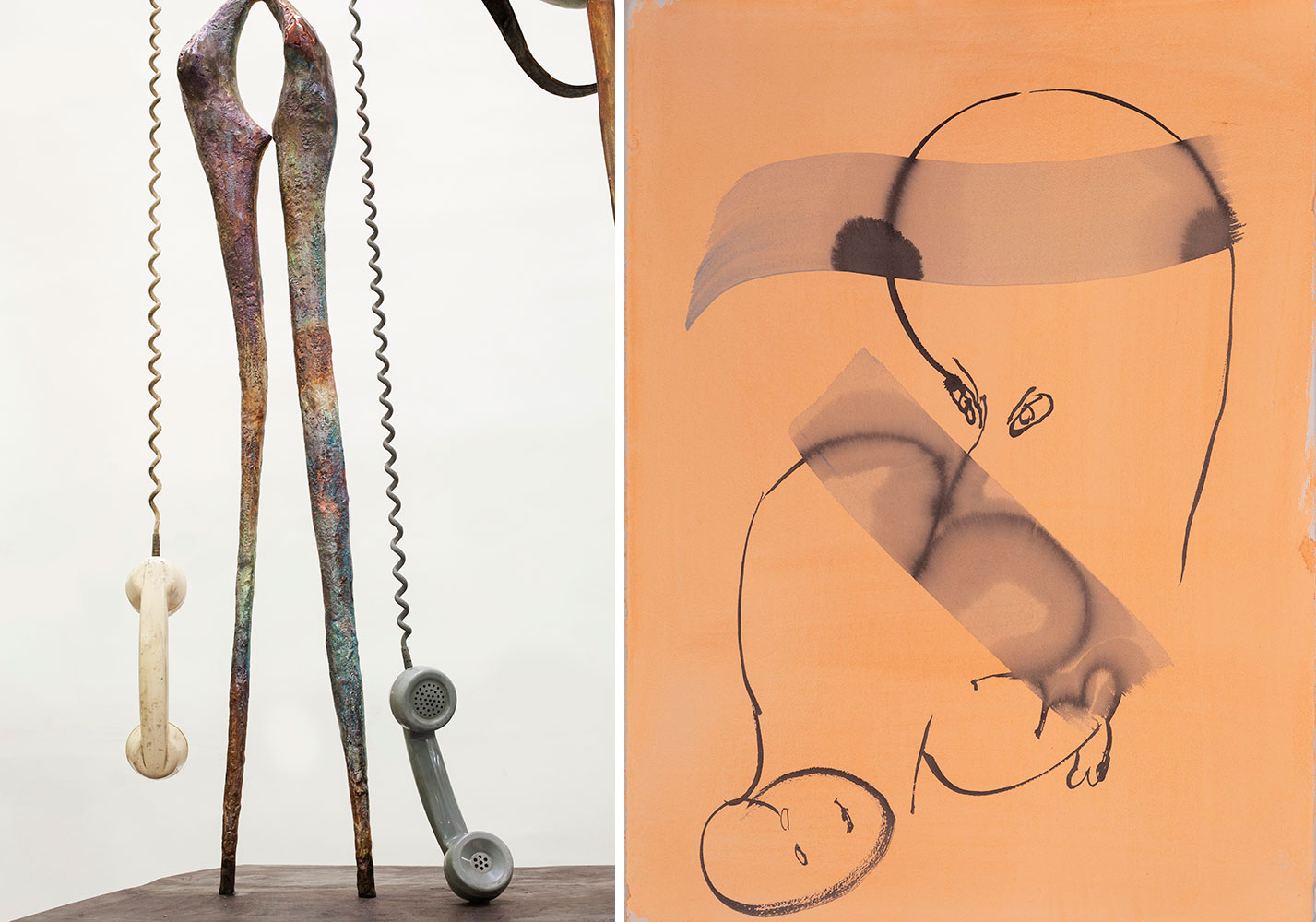
Right: Camille Henrot, Time for Change, 2019, Watercolor on paper, 55,9 x 76,2 cm, Courtesy of the artist and König Galerie-Berlin/London/Seoul, Photo: Camille Henrot Studio
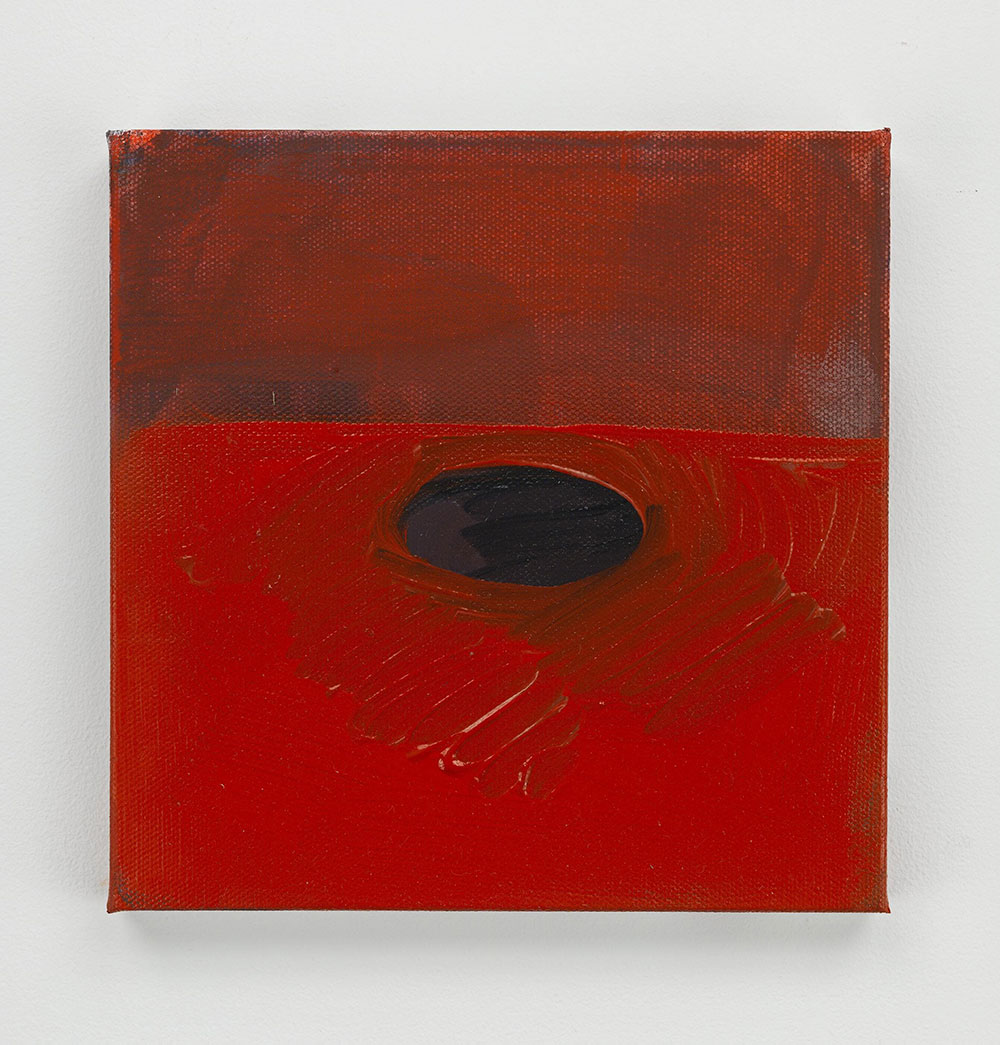
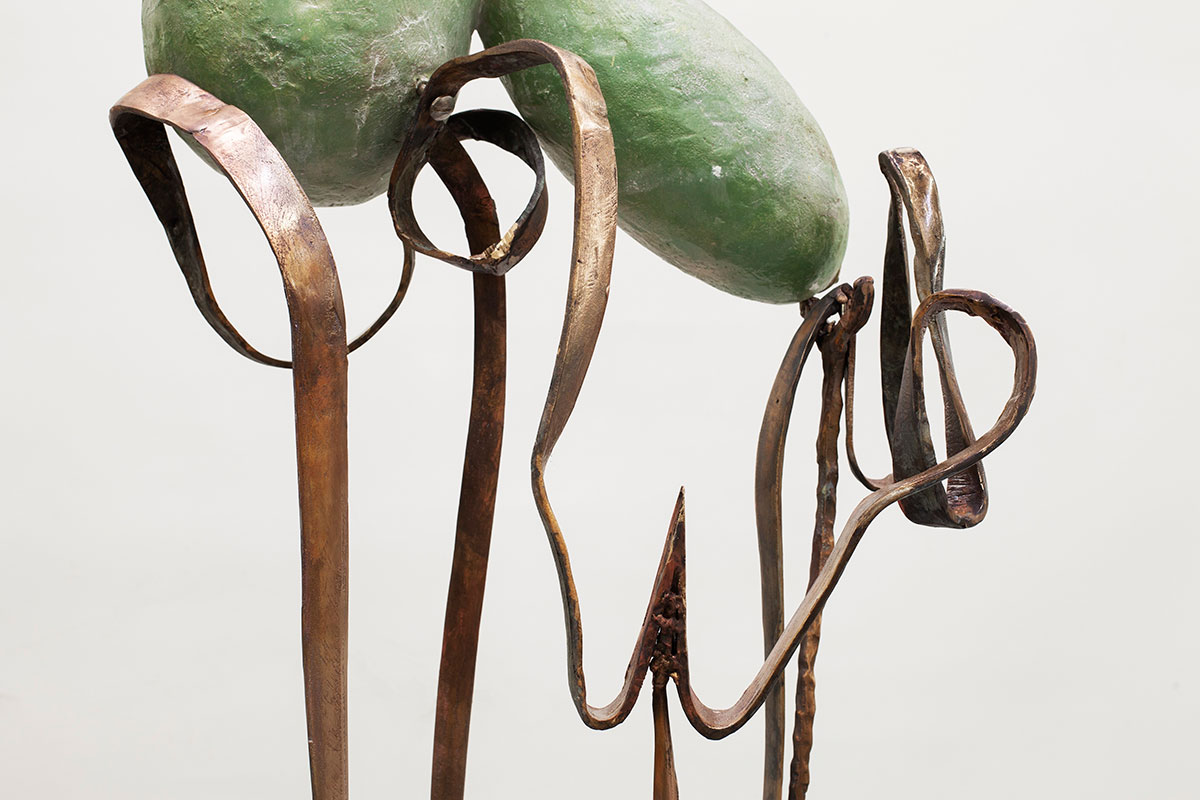
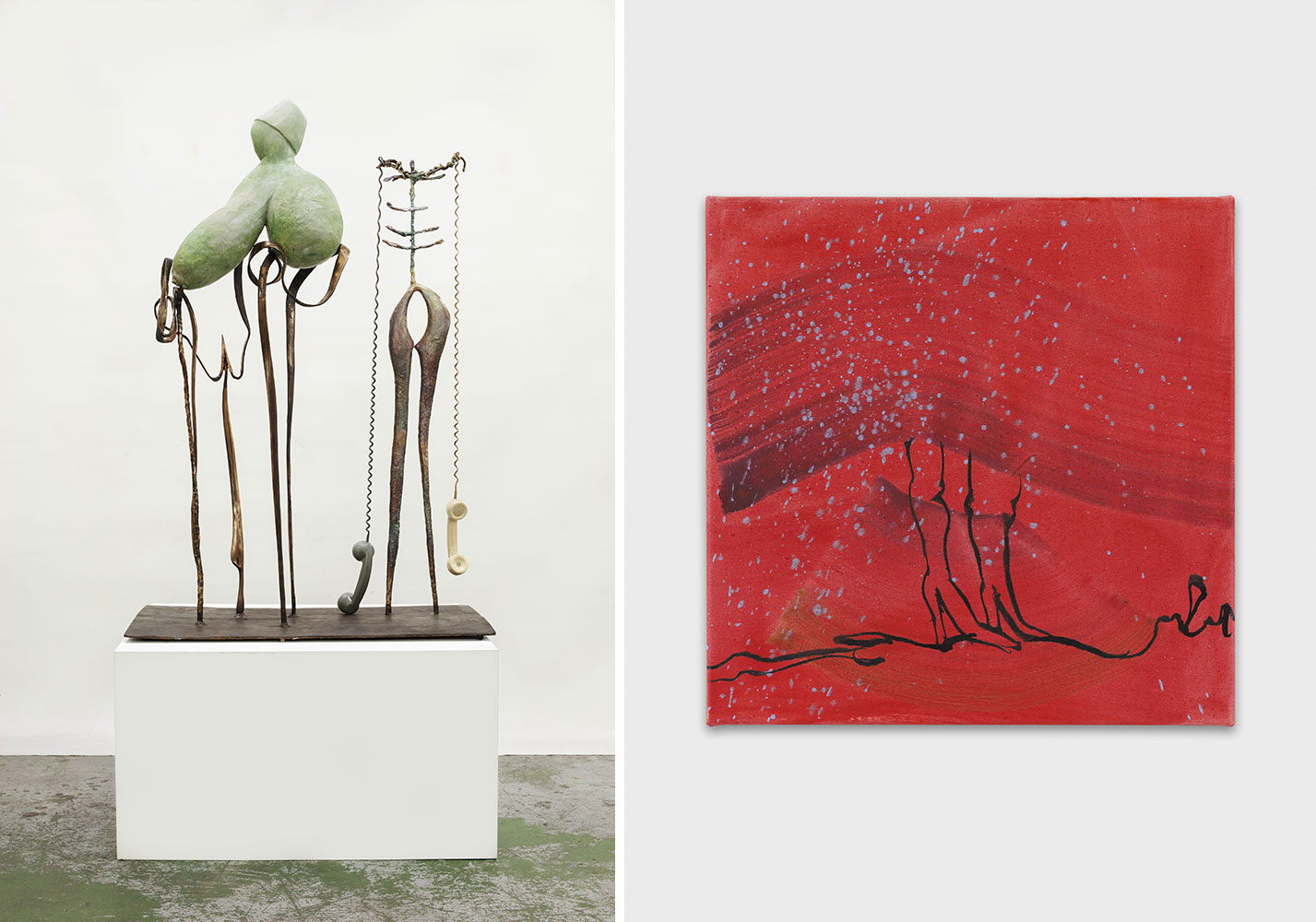
Right: Camille Henrot, The Day We Met, 2020, Oil on canvas, 40 x 40 cm, Courtesy of the artist and kamel mennour-Paris/London, Photo: Annik Wetter
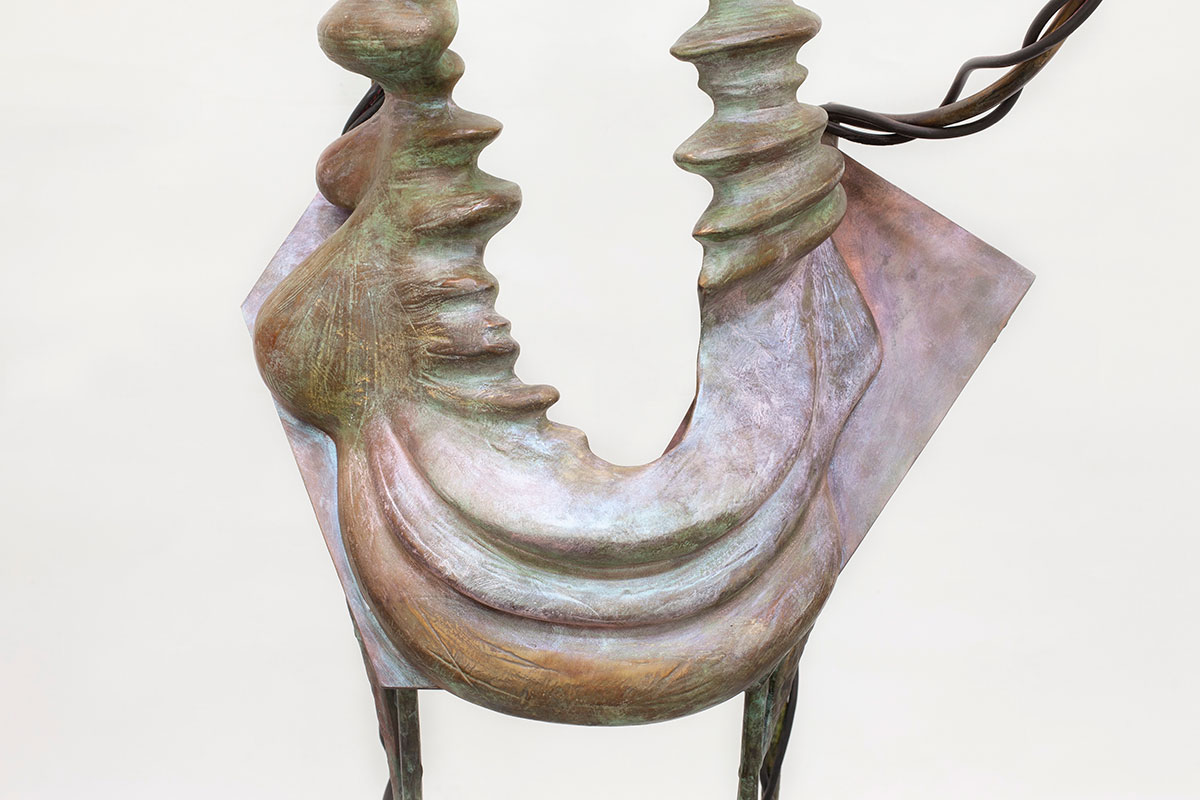
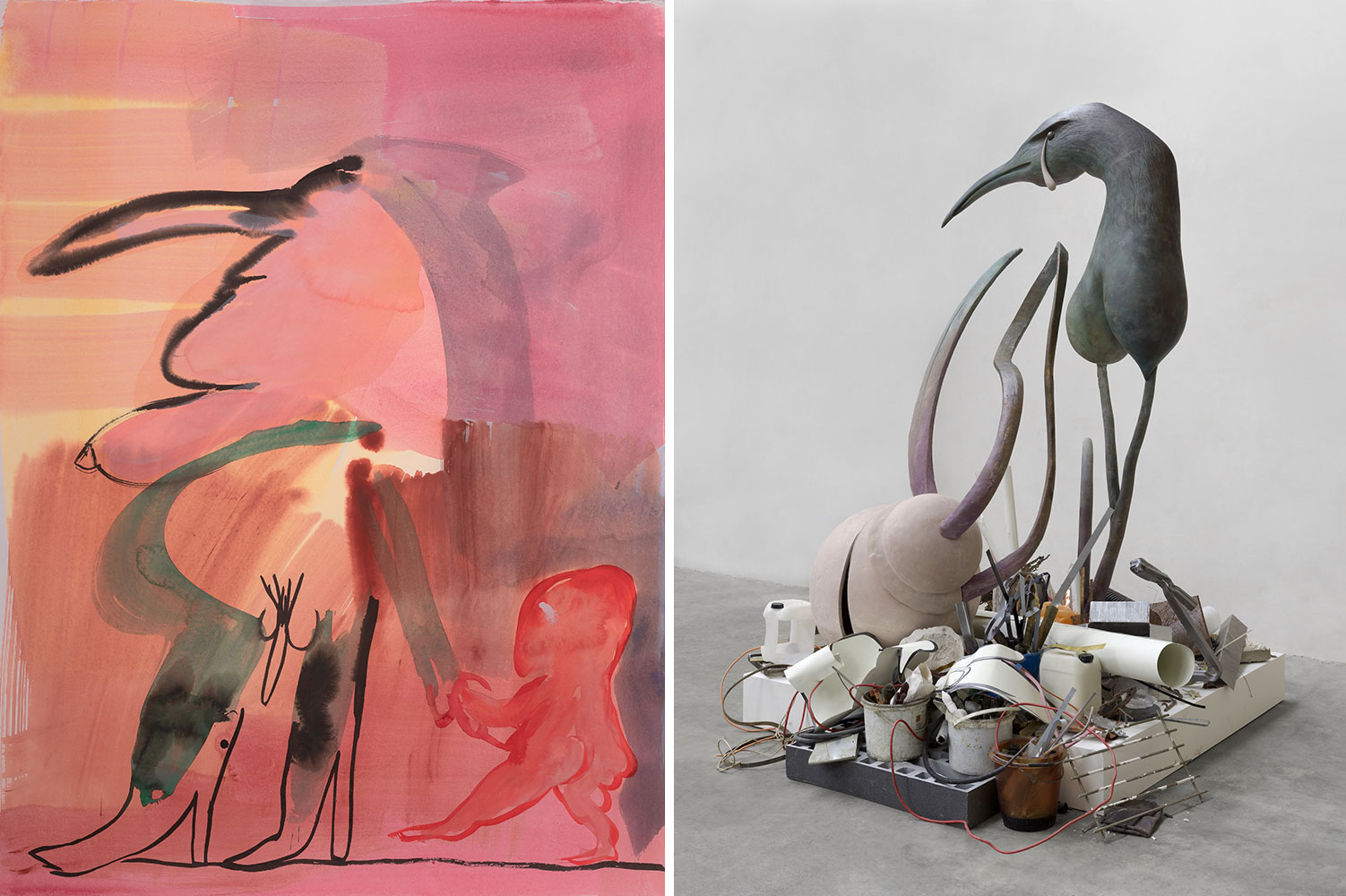
Right: Camille Henrot, 3, 2, 1, 2021, Bronze, flowstone, polyurethane, aluminum, brass, plaster, steel, wax, wood, various waste materials, 325 x 200 x 210 cm / additional waste materials around the pedestal), © ADAGP Camille Henrot, Courtesy of the artist and Kunstgiesserei St. Gallen, Photo: Annik Wetter
